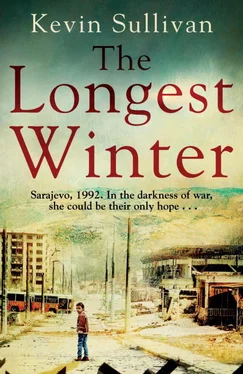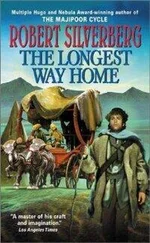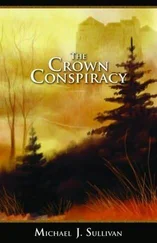The soles were thin, and Milena’s feet were cold. She couldn’t get a proper grip on the snow as she walked and slid down the serpent path towards the TV station, hurrying past the burnt-out trams till she reached the back road.
A heavy fog closed in on the darkness. She could see just a few yards ahead. Once, on the main road, as she crossed the tram tracks, stepping over twisted power lines that had been brought down in a bombardment and never repaired, she thought she saw a man lying on the ground nearby. She stopped, scared, and looked more closely, but it was a shell hole filled with black water, scarring the snow.
The tram station was surrounded by high railings. Peering ahead she made out the sharp steel points piercing the darkness and the fog like a ghostly stockade.
Milena kept music in her head, playing again and again, rewinding. She clutched at the bars of Kemal Monteno’s song. It was simple and true and good. It was a kind of shield for her, protecting her as she stumbled through the dark. She hummed the chorus, so softly that only she could hear.
She moved on past the railings, peering straight ahead. If anyone approached she wanted to see them first. She didn’t want to be surprised. She was ready to run back across the road.
Her coat felt heavy, and she was very tired. Ahead was a one-hour journey by foot across snow in unsuitable boots, in foggy darkness. After that, hours of work in a noisy smoke-filled bar. And her lover was in the west, where the sound of explosions could still be heard. And her people were far away from her. The people who became her family long ago. Željko and Jasna were in Dusseldorf. She had tried to contact them after the siege began, sending a letter out with an old woman, a friend of Mrs Nurudinović, who had left with her invalid husband on a Red Cross convoy. But she had no way of knowing if Željko and Jasna had received her letter.
She told them what had happened and why she had left Foča. She’d had to write quickly, sitting with Mrs Nurudinović, who had just heard that the woman and her husband were going on the convoy. Milena had only a few minutes to scribble a note to Željko and Jasna. She told them she was OK. She had work, a place to stay. She told them not to worry. She didn’t tell them what was in her heart. She didn’t tell them that it was breaking.
She did not say thank you to Željko and Jasna for everything that they had done. Afterwards, this weighed upon her. Yet it was not something that she could put into words. Even if they were in the same room, it would have been hard for Milena to talk like that to Željko and Jasna.
From the very beginning they didn’t talk about things, at least not about those things. They didn’t talk about Milena’s mother and father. They just never spoke about it. The three of them lived for years and years doing the things that families do. Željko and Jasna loved Milena with the tenderness and care of a mother and father, and Milena loved them as if she were their own child. And all those years they never spoke about it. How could she have put anything down in a letter? These were things about which she could not speak. Her hastily written note said she was OK, and was signed with an affectionate kiss. It was the best she could do. Now it weighed upon her and she wished she had said more.
She was very tired. Her feet began to feel numb. She remembered Nina’s hand in hers when they walked to the hall. Milena wore black leather gloves and Nina wore blue and white woollen mittens.
She had to walk more slowly because of the fog. It took her an unusually long time to pass the TV building and the tram depot and make her way to the back road.
She tried not to think about work, standing and smiling interminably and calculating change and combining orders and staying on the right side of the new barman, whose qualifications for the job appeared to rest on the fact that he was a cousin of the owner.
Not like Fudo, who had a gift. Fudo who filled the tiny riverside bar in Foča with his genial presence. He was the most uncomplicated man Milena had ever known. At least, he seemed so to her. They used to have jokes that ran between them for days and left the others excluded – odd things that Fudo and Milena found funny. She treasured their friendship. It was a priceless part of the life she made in Foča. The day that Miroslav accused her of infidelity drove a hole through that life. And the day he went with the others to get Fudo – that day she could barely think about. The day she watched from the window.
Fudo was so much taller than the others, and yet he had been afraid. Those men used to sit in his bar. They respected him. Everything that had once bound them to one another and to Foča lay in ruins when Fudo Omeragić was set upon by former friends.
Miroslav was the leader of that pack.
Miroslav who had been her faithful lover.
Milena sought to understand Miroslav’s betrayal. When she made space between them – a space measured in time and distance and barbed wire and bereavement – she looked again at their lives and tried to understand the force that shattered the house, and the life, that they had built.
She set Miroslav’s sense of wounded honour against the wounded honour that began the war. The seed of suspicion grows in the psyche of individuals and of nations in the same way, the seed of resentment, the seed of hostility and fear. Once the sickness has taken root it is hard to cure. Milena could not bring herself to confront openly her husband’s guilt, but she blamed those who sowed the seeds, those who played upon resentment and turned his weakness to wickedness. When the great plague came, Miroslav might have turned on Fudo, but Milena understood that he turned on Fudo more easily because of what was whispered years before about Milena. That little vial of poison spawned a monstrous crime.
She clung to memories of Miroslav. She was walking now towards the place where they had met. A little further on, on the right side of the street, was the apartment where Mira’s aunt and uncle used to live. She’d heard that they had gone to Zagreb before the start of the war. Mira was somewhere in Croatia.
Ah, that morning. It had been as cold as it was now. When they arrived by bus from Foča, three girls from the countryside, visiting the city on their greatest ever adventure. And Miroslav was there, waiting for them, waiting for her. They were fated to be together. That she knew. And they had had happy years, when they built their lives together and loved one another.
She walked along a narrow stretch of road with trees on either side. Behind the trees to her right was a long line of low grey buildings that looked almost like cottages. Perhaps they had been there since before the First World War, she thought, when this road was a country lane. She was on the oldest road into the city. She was walking through an area that was once covered by fields of wild sunflowers. Nearby was a railway goods yard. She knew it was there but she couldn’t see it because of the fog. The trees were black and leafless.
Milena thought about summer, imagined the trees thick with leaves, speckled brightly with rays of flooding sunlight. She thought of bird song, considered the way Miroslav, by the water’s edge at Krvavac, once lifted her up from where she sat on a rug beneath a tree and kissed her, passionately, one August afternoon. They were alone, but she could hear the sound of children playing nearby.
He made his life with her. He made his wedding vows and kept them – until the day he dishonoured himself at the head of a mob, the day he turned into a murderer. And so she left him, and escaped to the city.
She heard small-arms fire from Pero Koserić Square, and ahead, between the bakery and Mira’s aunt and uncle’s old flat, there were two mortar explosions.
Читать дальше












